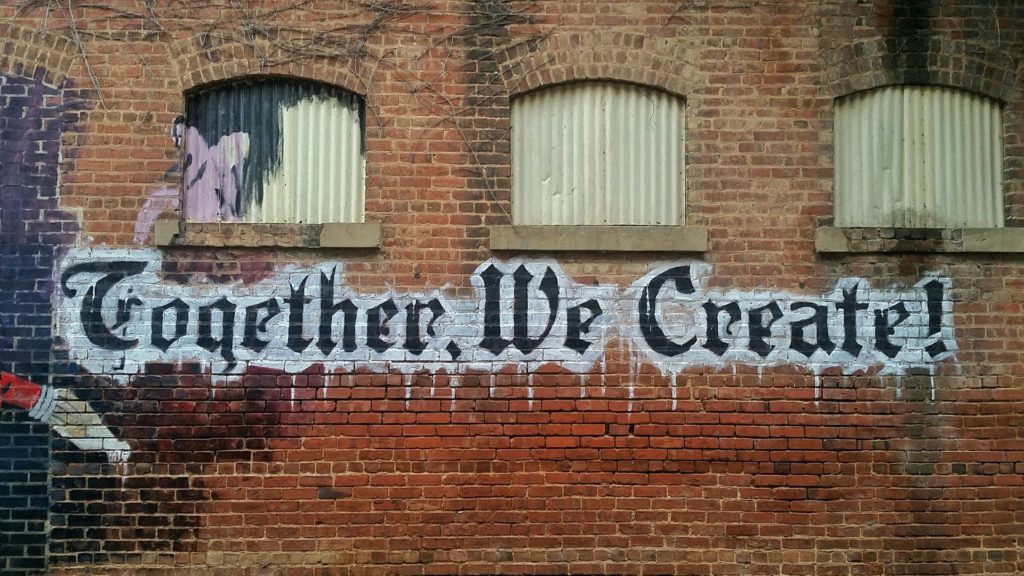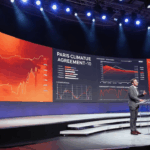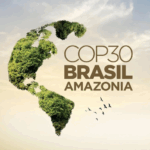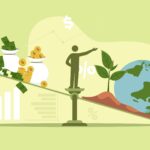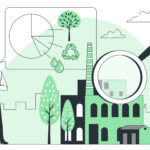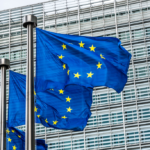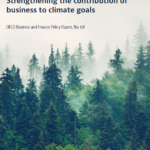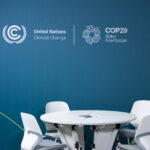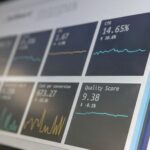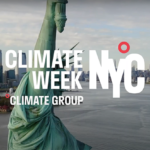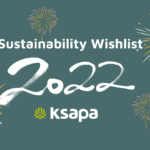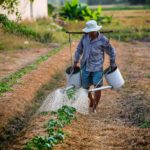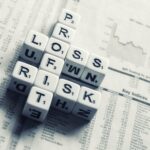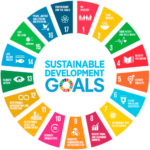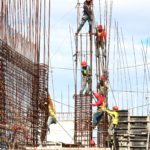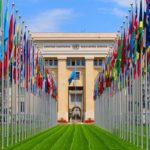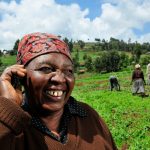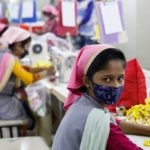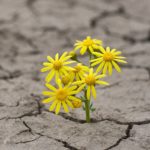This article is part of a series republished via the Council of Business and Society platform.
Ksapa recently held a webinar to explore solutions for corporations and investors to #BuildingBackBetter. Here are our key takeaways for navigating the crisis, by learning from the past and exploring innovative solutions to address the unique circumstances of the present crisis.

Amid Socially Explosive Contexts Across the Globe, Covid-19 Could Push up to 100 million People Into Extreme Poverty in 2020
Amazon stock prices have shot up from $1,850 to $2,600 since January 2020. Technological giants not only have recovered their value lost to Covid-19, some have enjoyed a sustainable boost in demand for their products and services from the pandemic. Meanwhile some estimates would suggest Covid-19 could push up to 100 million people worldwide into extreme poverty. With a second outbreak of the Covid-19 pandemic upon us, the OECD’s worst-case scenario would appear to be verified, forecasting the world economic output to plummet 7.6% in 2020. Unemployment in OECD economies could be more than double the rate prior to the outbreaks, with little hope for job recovery by 2021.
Back in July 2020, Ksapa stressed an inclusive recovery would hinge on common vision and leadership. To examine these challenges in the context of the current recession, Ksapa organized a webinar with Susan Winterberg (Harvard Belfer Center for Science and International Affairs fellowship), Romina Boarini (OECD Center for Wellbeing Inclusion, Sustainability and Equal Opportunities) and Žiga Žarnić (OECD Head of Country Reviews Unit). First, Ksapa considers commonalities and contrasts in the current crisis compared to that of 2008, to embed these lessons in the way we balance solutions for an inclusive recovery.
Learning from Past Recessions: Contrast and Commonalities
A look back the 2008 financial crisis shows how uneven efforts to restore sustainable economic growth have been. An OECD report 6 years down the line pointed to a subdued recovery, with emerging-market economies facing a generalized slowdown where advanced countries only saw a lower growth potential. Indeed, the income of the bottom 10% earners rose 1.6% between 2010 and 2014, compared to a 5.2% growth rate at the top. Illustrative of the resulting income disparity, the top 10% had recovered pre-crisis wages by 2014, when the most vulnerable 14% less than they did prior to the subprime scandal.
When the United States were in the throes of the 2008 subprime crisis, government stabilization measures included a bank bailout for the sake of short-term recovery. Preexisting inequalities were entrenched in the process, which the Covid-19 pandemic brought to light – this time with bottled-up resentment. There is growing concern the current recovery package is immoderately banking on the trickle-down effect from a wealth few, when Covid-19 so disproportionately affected the most vulnerable.
1. The Unprecedented Scale of the Covid-19 Global Crisis
A key characteristic of the current crisis is its scale, owing to the fact a socio-economic upheaval arose on top of a global pandemic, all set against a background of high climate alert. In a globalized economy, our increasingly interconnected ecosystems have created a backlog of virtually unresolved crises and inequalities. Despite the difficulty of taking on different crises that so clearly feed off one another, short-termism in recovery measures would entirely miss the mark, given the broader societal volatility and climate urgency of this next decade.
The OECD is indeed finding it challenging to fully assess the cost of the health crisis. As the global collective infers lessons from the first wave of Covid-19, studies are emerging to ascertain its underlying wellbeing and health impacts. Psychological distress has for instance been linked to confinement measures and/or recovering from the virus, akin to a post-traumatic syndrome. Meanwhile, patients suffering from chronic diseases have struggled to access the treatment they needed given hospitals were overwhelmed and global supply chains disrupted. In all likelihood, they have not been able to get their medicine, which may cause them to develop graver symptoms and become all the more vulnerable to respiratory distress. Lockdown measures have also impacted how we work and care for our families, causing a surge in domestic violence, made altogether more frequent, severe and dangerous and with literally no way out. Just in the city of Jingzhou (China), domestic violence calls to the police tripled in February.
Another reason for concern is that the Covid-19 recession or even just the specter of new lockdown measures could spell out further violations of human rights around the planet. In the United Arab Emirates, laws have been loosened so businesses could break the work contracts of non-nationals, squeeze wages or pressure workers to take unpaid leave. Thousands of Indian workers are left to choose between work without pay or repatriation, with little transportation options at that. With as many as 100 million pushed into extreme poverty by the coronavirus, households go into survival mode and resort to child labor, with studies correlating a 1 percentage point rise in poverty to a 0.7 percentage point increase in child labor.
These are just some of the issues brought to bear by Covid-19, so that effective recovery policies must move beyond economic growth and job creation statistics, focusing instead on well-being indexed on income, job quality, housing and health. More specifically, where stimulus packages target environmental objectives, a focus on people’s well-being is also crucial to cement the social and political acceptance of environmental measures.
2. An Accelerated Socio-economic Transformation
With great crises come great changes. Already in the 1950’s Schumpeter theorized the key role of creative destruction, as a continuous process of industrial mutation endlessly reinventing the economic structure from within. From recession to depression, the linchpin lies in technological innovation which allows for recovery, more innovation and ensuing prosperity.
Innovation comes in many forms – chiefly process, organizational, product, raw material sources and market innovations. Given the impending recession, we can expect the general upheaval and aspiration for change could foster exponential innovation. For instance, the digital revolution has been prophesied for at least a decade, but organizations were struggling to effectively plan and activate their digital transition. Now, with Covid-19 contagion concerns and lockdown measures pushing households and workers online, the situation would appear very different, both from an investment and a corporate viewpoint. For one, social distancing measures have boosted digital interactions to such an extent one study estimates 92% of surveyed companies redirected stakeholder dialog platforms to digital channels and boosted a long-awaited digital transition in the process. For another, digital services companies are directly profiting from the crisis, with record high stocks prices cementing their market dominion.
3. Our Business Elite Itself is Increasingly Questioning the Benefits of Globalization
In contrast, another trend is emerging that would question the benefits of globalization altogether. What is so unique about the present crisis is that such concerns would arise from the elite. According to the Edelman 2020 Trust Barometer, 56% consider capitalism as it exists today does more harm than good in the world. There again, inequalities have eroded trust, to the point 57% of the general population considers governments serve only special interests as opposed to a wealthier, education and connected public a lot more trusting of instated powers. Meanwhile, less than 30% trust businesses to pick up the slack, notably in terms of paying decent wages or training workers. According to the 2020 Deloitte Global Millennial Survey, in December 2019, 51% of Millennials saw business in general as a force for good, down from 76% three years ago. Fast-forward to May 2020, that number is down to 41%. Likely to reinforce this trend is the coming of age of Generation Z who, despite enjoying more disposable income, generally relate to public and private institutions in a much more pragmatic manner.
3 Levers for an Inclusive Recovery
Ksapa would contend the only way out of the present crisis is through cooperation. The pervading uncertainty of an international community dealing with a second wave of the pandemic would appear to hinder such a vision from emerging. That said, the decision-makers capable of laying the foundations for an inclusive recovery now will be all the likelier to come out on top. As we collectively wait to see where the chips will fall, 3 key levers emerge that would support an inclusive recovery from the coronavirus-induced recession.
1. Striking the Right Balance Between Conventional Crisis Management and Long-Term Investment
Now more than ever, businesses must strike a balance between conventional crisis management and long-term investment. Confinement measures have caused a major drop in consumption and orders, to such an extent operating efficiency measures do not suffice. Past recessions have convinced business layoffs are unavoidable instead of accepting temporary productivity slumps to address financial and competitiveness challenges. With the Covid-19 pandemic set to last, it generates durable and unprecedented uncertainty in terms of supply continuity, new ways of working and value creation. As a result, past approaches may no longer prevail. Based on pre-crisis figures, unemployed workers more than double their risk exposure to illness, addiction and depression. Companies opting for layoffs now jeopardize their license to operate – and at the worst possible time.
The choices leaders make during an economic downturn drive performance during a recovery. It is tempting for business to go in an all-out survival mode and make deep cuts in staff, or sink strategic suppliers by cancelling orders. In contrast, Harvard Research stressed how companies capable of focusing on operational improvements instead generally outperformed the competition and reunited with growth. The rationale is layoffs are expensive for companies – and they durably harm already vulnerable low income and minority groups. For instance, despite having saved their jobs, survivors tend to be so traumatized their job performance can drop by as much as 20%. This creates short-term quality and safety risks and ultimately challenges the company’s capacity to recover because it has lost top talent, cannot secure new patents or deliver new products on time.
2. Investing in a Contingency Plan to Adapt to Uncertainty and Minimize Business Disruption
A Harvard Belfer Center fellow researcher, Susan Winterberg joined Ksapa in stressing the importance of preparing contingency plans at the earliest opportunity, for the immediate future and the coming decade. Alternatives in hour reductions, furloughs and performance pay have proven effective to address the 2008 subprime crisis, particularly among the companies most severely hit by the recession and those with the highest levels of debt.
To anticipate on a better future, companies will find stakeholders increasingly expect them to invest in sustainable transitions both from within and for the broader society. On a short-term basis, that would mean developing inclusive workplaces for employees through business continuity plans with sufficient flexibility to adapt to uncertainty and minimize business disruption. This notably calls for efforts to zero in on safe working environment and work-life balance for employees. It would also entail safeguarding wages and job with the appropriate work schedules re-arrangements, working in unison with public interventions.
Looking to longer-term organizational transitions, companies could develop proactive programs ranging from capacity-building to research and development and digital transformation, to name a few options. Addressing the generalized appetite for change and corporate societal activism may take the form of repatriating initiatives to cut outsourcing, infrastructure development in key territories to boost asset autonomy and reinforcing internal efforts with highly-localized capacity-building for even greater relevance across their territories of operations.
3. Cooperation, Cooperation and more Cooperation
Ksapa has stressed its commitment to multisectoral co-construction. Now the stakes could not be higher, we need greater efforts to align public and private decision-makers, multinationals and small or medium-sized enterprises, investors and trade unions or civil society organizations. Collaborative initiatives offer a way forward to create more inclusive ecosystems and value chains, despite the economic downturn and shore up vulnerable clients and communities when they need it most, for now and the future.
The OECD indeed reiterated a call for all-around cooperation to secure service supply continuity for companies and the provision of essential inputs (water, food, energy, etc.). This in turn helps vulnerable clients and suppliers, notably by streamlining payment or deferring credit repayments among other likeminded financial mechanisms. Finally, collective financial support and facilities totaling more than €38 Bn have been unlocked by B4IG membership to support communities and governments manage the crisis wherever partnering companies may operate. These in-kind and financial donations may help address the immediate sanitary crisis by funding healthcare centers, hospitals or research institutes to find an antidote, providing emergency medical supplies and other critical health-related essentials. They can also see to providing broader socio-economic impact through food, essential goods and services distributions to the most vulnerable.
Conclusion | Focusing on Systemic Issues
Different crises reinforce fragmentation and call into question the notion of overarching sense of purpose. Ksapa supports businesses in refocusing on values, in the form of a purpose statement that formalizes a new value proposition, expectations for employee engagement, commitment to supporting their extended value chain and action toward addressing the broader sustainability challenge. Ksapa also leads consulting and impact investment programs to enable corporations and investors to focus on systemic issues and aggregate resources toward #BuildingBackBetter, with ambition, scale and impact.
This in turn calls for expert methodological input to help companies (and decision-makers in general) consider how they will uphold their commitment to commitment to sustainable change, who they will place in charge to manage it and which metrics they will use to monitor and demonstrate progress.
***
Ksapa is a reference platform committed to advancing the issues of human rights, climate and circularity within the international business and investor communities. More than 150 international practitioners join us to consider issues as sensitive and complex as inclusive growth amid the current recession, including Airbus, Arla Foods, ATP Investment, Axa, Bonsucro, Baker Hugues, Bouygues, Coca-Cola, Crystol Energy, Danone, Diageo, EDF, Electrolux, Enel, Firmenich, Framatome, Ingenico, JDR Cable Systems, Kadye Global, Johnson Matthey, Limagrain, McKinsey & Company, Michelin, Multiplex, Nestlé, Neste, Orange, Philip Morris, Positive Fashion, RB, Rio Tinto, Roche, Sarasin UFG La Française, Schlumberger, Schneider Electric, SNCF, STMicroelectronics, Société Générale, Stora Enso, TCO Sverige, The Walt Disney Company, Total, Upfield, Vestas, Vinci and WSP. They were joined by consultants, academics, multilateral organizations and non-profits the likes of the Association of Professional Social Compliance Auditors, Bonsucro, the Indonesian Defense University, the Danish Institute for Human Rights and Business, the Federal Supreme Court of Ethiopia, GoodCorporation, KEDGE Group Business School, Novethic, the Notre Dame Law School, NYU Business School, OECD, Open Society Foundations, UNPRI, Proparco, PUR Projet, RespectUs, Tribal Policy Research, the United Nations Human Rights Defenders, the United Nations Human Rights Working Group and Sustainalytics.
Président et Cofondateur. Auteur de différents ouvrages sur les questions de RSE et développement durable. Expert international reconnu, Farid Baddache travaille à l’intégration des questions de droits de l’Homme et de climat comme leviers de résilience et de compétitivité des entreprises. Restez connectés avec Farid Baddache sur Twitter @Fbaddache.

